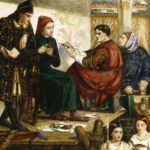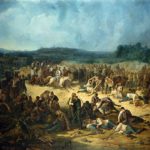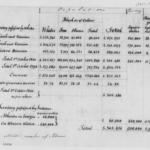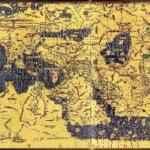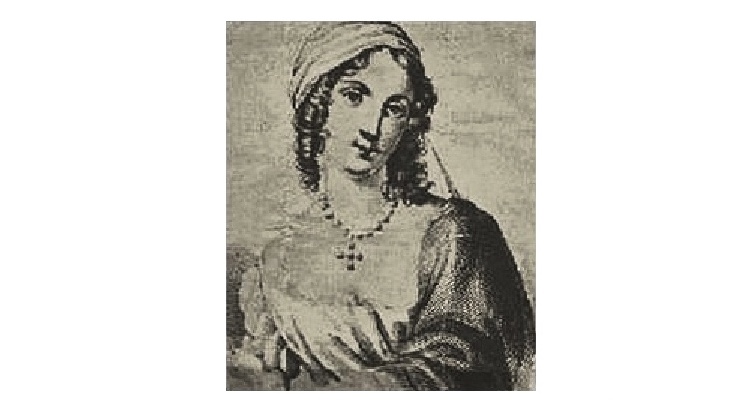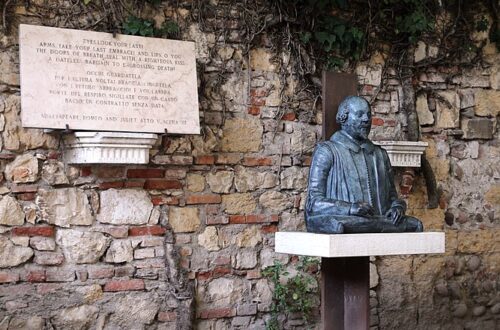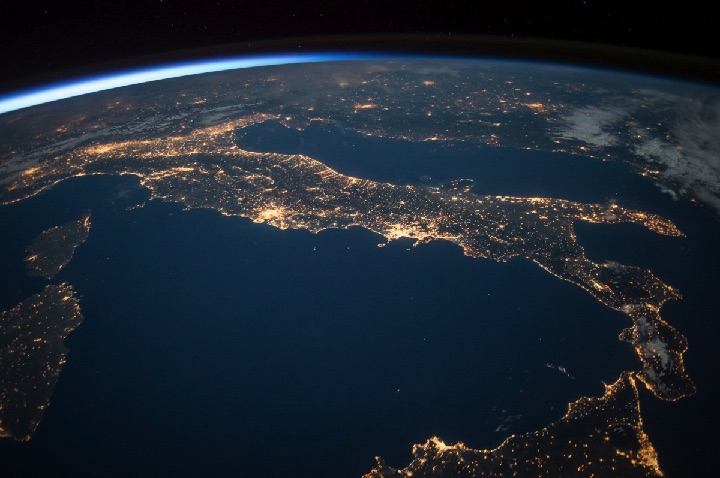
Who Am I to Speak to You of Italy?
Who am I to speak to you of Italy?
Chi sono io, per parlarvi dell’Italia?
Who, for more than 50 years have lived in silence, far beyond her shores.
Chi sono io, per parlarvi dell’Italia? Chi, per più di cinquant’anni ha vissuto in silenzio, lontano dalle sue sponde.
Yet, such words do not belong to me alone. “Italian Americans are invisible people.” Fred Gardaphé writes, “Not because people refuse to see them, but because, for the most part, they refuse to be seen.” Even here, across an ocean, truth resonates in his words. And as he knows, being forgotten has a price. A price paid with the coins of self-forgetting.
Eppure, tali parole non appartengono solo a me. “Gli Italo-Americani sono gente invisibile,” scrisse Fred Gardaphé. “Non perché la gente rifiuta di vederli, ma perché, per lo più, rifiutano di essere visti.” Anche qui, attraverso un oceano, suona la verità nelle sue parole. E come egli sa, essere dimenticati, richiede un prezzo. Un prezzo pagato col denaro della dimenticanza di sé.
“I am Italian.” “I am Australian,”, here statements irredeemably, eternally both true and false. Words which mock reason and defy solution. Yet in their mischievous unruliness, a distant promise gleams: if our gaze is steady.
“Sono italiano. Sono australiano,” qui dichiarazioni irrimediabili, eterni, sia veri che falsi. Parole che prendono la ragione in giro e sfidano qualsiasi soluzione. Eppure nella loro sregolata giocosità, una lontana promessa luccica: se teniamo lo sguardo fermo.
From across an ocean, Italian-American voices shape us. Mario Puzo, wrote the Godfather. Yet, invisibly, his greatest hero, immigrant mother Lucia Santa, laments: “America, America, … My children do not understand me when I speak, and I do not understand them when they weep.” Nino Rota’s music, under the shadow of the Statue of Liberty, sings of loss. For no ship will ever carry pilgrim back home through the bewildering currents of time.
Da oltre un oceano, voci Italo-Americane ci formano. Mario Puzo scrisse il Padrino. Eppure, invisibile, il suo più grande eroe, la madre emigrata Lucia Santa, lamenta: “America, America … i miei figli non mi capiscono quando parlo, ed io non li capisco quando piangono.” La musica di Nino Rota, sotto l’ombra della Statua della Libertà, canta di quello che è perso. Perché mai nave porterà i pellegrini di nuovo a casa attraverso le correnti confondenti del tempo.
Maria Famá’s Sicilian-American poetry recites: “I will not check the box for white on any form.” For the box on the form surely tells of slavery and racial division in her new land. It is not her story. She does not forget. She does not forget the Black Madonna of Tindari for whom “racism is a sin”.
La poesia Siciliana-Americana di Maria Famà canta: “Non segnerò il riquadro per ‘bianco’ su nessun modulo.” Perché il riquadro sul modulo sicuramente narra della schiavitù e delle divisioni razziali in quella nuova terra. Non è la sua storia. Non dimentica. Non dimentica la Madonna nera di Tindari per cui il “razzismo è peccato.”
In the margins of war, an English airman wandering the Tavoliere also saw the Black Madonna’s serene powerful face. “Father, why is she black?”, he asked. Here, hidden stories of ancient faith unforsaken; and cries for justice launched on the prayers of a million hearts.
Ai margini di guerra, anche un aviatore inglese vagando sul Tavoliere ha visto quella faccia serena, potente, della Madonna nera. “Padre, perché è nera?” ha domandato. Qui, storie nascoste di un’antica fede mai abbandonata; e richiami per la giustizia lanciati sulle preghiere di un milioni di cuori.
At the Battle of Solferino, the final birth pangs of Italy, the women of Castiglione stood by. And in their tearful eyes, Henri Dunant saw their anguish as they bound the wounded and dying young men of many nations. When he listened, their hearts beat like his own: “Tutti Fratelli, Tutti fratelli”. “All honour”, Dunant exclaimed, “All honour to those compassionate women, to these girls of Castiglione!” From the seeds they nurtured in his heart were born the famed Geneva Conventions.
Alla battaglia di Solferino, le ultime doglie del parto dell’Italia, le donne di Castiglione stavano vicino. E nei loro occhi pieni di lacrime, Henri Dunant ha visto la loro angoscia per i feriti e i morenti giovani di tante nazioni, mentre loro li fasciavano. Quando ha dato l’orecchio, ha sentito i loro cuori battere come il suo: “Tutti Fratelli, Tutti Fratelli.” “Onorate!” ha esclamato Dunant, “Onorate quelle donne compassionevoli, quelle ragazze di Castiglione!” Dai semi che hanno nutrito nel suo cuore nacquero le famose Convinzioni di Ginevra.
It was no accident that destiny should unfold on the plains of Italy, for as Italy lies on faults deep within the Earth, so has she long lain along the political fault lines of Europe. And the cultural and theological discord of Mare Nostrum washes her shore.
Non fu per caso che il destino si spiegò sulle pianure dell’Italia, perché come l’Italia si trova su fessure profonde nella Terra, così a lungo si è estesa sulle fessure politiche dell’Europa. E la discordia culturale e teologica del Mare Nostrum bagna la sua riva.
In lost centuries the children of Abraham proclaimed her glory. As in the days of the prophet Isaiah so it would be in Puglia: “From Bari shall go forth the Law and the word of the Lord from Otranto“. Few remember now, but their ghosts walk in every uncounted Vico Ebrei which yet adorns Italy.
Nei secoli perduti la prole di Abramo cantava la sua gloria. Come nei giorni del profeta Isaia, così nella Puglia: “Da Bari uscirà la Legge, e la Parola del Signore da Otranto.” Pochi ora, si ricordano, ma i loro fantasmi camminano ancora in ogni scordato Vico Ebreo che ancora adorna l’Italia.
For Sicily’s Michele Amari, Italy could never be until her story was fully told. And from ancient manuscripts, inscribed in an eloquent poetic tongue, he drew forth a hidden Arab past and the forgotten glory of his island.
Per Michele Amari della Sicilia, l’Italia non poteva mai nascere, fino a quando la sua storia non era stata pienamente raccontata. E da manoscritti antichi, incisi in una lingua elegante, poetica, egli ha tratto la gloria Araba dimenticata della sua isola.
Denis Mack Smith writes in the “The Making of Italy” of “great men”: Mazzini, Cavour, Garibaldi (and beyond them still “greater” men in Europe’s great capitals). And who can deny that such men placed their mark upon the fabric of Italy? Yet that undivided fabric is woven of many threads. Threads that span oceans and unwind far into the past. Ever evolving customs of birth and death, faith and food, love and loss, all woven together in infinite joyous life: the Italy that the world sees and loves.
Denis Mack Smith scrisse in “The Making of Italy”, di “grandi uomini:” Mazzini, Cavour, Garibaldi (e dietro a loro uomini anche “più grandi” nelle grandi capitali d’Europa). E chi può negare che tali uomini abbiano lasciato la loro stampa sul tessuto dell’Italia. Eppure quel tessuto indiviso è intessuto di tanti fili. Fili che attraversano oceani e che si sfilano in un passato lontano. Usanze sempre in evoluzione di nascita e morte, fede e cibo, amore e perdita, tutto intessuto insieme in gioiosa vita infinita: l’italia che il mondo vede ed ama.
Dante Alighieri: Father of Italian and Citizen of the World, is the fitting patron saint of the Italian diaspora, for he himself knew well how hard it is to climb stairs which are made for others. He sought a language worthy to speak the greatest human thoughts and he knew it must be the language of mother and child. He gave birth to a community of writers, and in time, beyond his imagination, a nation.
Dante Alighieri: Il Padre dell’italiano e Cittadino del mondo, è un santo patrone degno della diaspora italiana, perché anche lui conosceva quanto sia difficile salire la scalinata fatta per altri. Ha cercato una lingua degna di esprimere i pensieri umani più profondi e sapeva che quella lingua doveva essere la lingua di madre e fanciullo. Ha dato luce a una comunità di scrittori, e con il passare del tempo, oltre la sua immaginazione, a una nazione.
Dante’s Beatrice, she who makes blessed, appears before me, when I say, “I wish to write of Italy, what has never been written of a nation before”.
La Beatrice di Dante, colei che rende beato, mi appare, quando scrivo, “Voglio scrivere dell’Italia, quello che non è mai stato scritto di nazione alcuna.”
Yet, the unexplored literature of Italy fills shelf after shelf: the whispered voices of a people.
Eppure, la letteratura inesplorata dell’Italia riempie scaffale dopo scaffale: i sussurri di un popolo.
Who am I to speak to you of Italy.
by Michael Curtotti
Chi sono io, per parlarvi dell’Italia.
Translated by Michael Curtotti
Note
The above work was written to mark the occasion of the Giornata Della Ricerca Italiana Nel Mondo held at Mathematical Sciences Institute of the Australian National University on 17 April 2019 by the Embassy of Italy. Due to shortness of time I did not read final three paragraphs.
An Italian translation was added on 30 January 2025. With grateful thanks to Azzurra Cirrincione for her proofreading of the Italian translation.
Quest’opera fu scritta in occasione della Giornata Della Ricerca Italiana Nel Mondo nella Mathematical Sciences Institute del Australian National University, 17 aprile 2019 dall’Ambasciata Italiana. Gli ultimi tre paragrafi non sono stati letti, per mancanza di tempo.
Commentary
This work may be thought of as a “first preliminary synthesis” of the Italian Stories series. On 12 August 2019, I published an accompanying commentary, which explores some of the background to this work.
